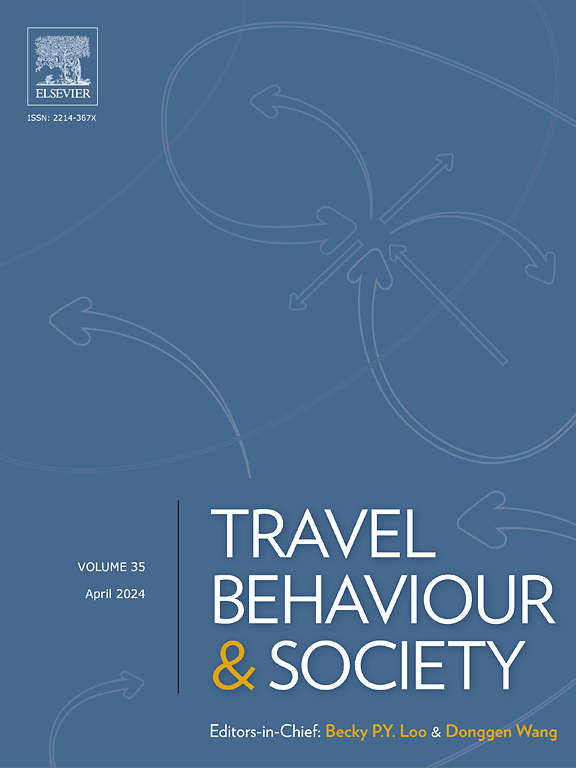Understanding the mechanisms by which residential relocation affects changes in cycling: A theory-building process tracing approach
IF 5.7
2区 工程技术
Q1 TRANSPORTATION
引用次数: 0
Abstract
Introduction
Promoting cycling for both transport and leisure is a policy priority recognized for its potential to improve health. Life events, such as residential relocation, often trigger behavioural shifts in cycling. However, the complex mechanisms and interplay of factors influencing these changes remain not well understood.
Methods
This qualitative study explores the impact of relocation on cycling, using a novel theory-building process tracing approach to re-analyse 28 in-depth interviews conducted between 2008 and 2011 as part of the Cycling Cities and Towns (CCT) project in England.
Results
Three mechanisms are identified linking relocation to changes in cycling behaviour: physical changes, social changes, and intentions. Most (male) participants responded to physical changes in the environment. Reassessment of these changes was common among those who increased cycling but not among those who reduced it. The study also highlights the important role of social changes in influencing cycling behaviour post-relocation and reveals gender differences in how these social shifts influence behaviour.
Conclusion
Relocation presents a significant opportunity for behaviour change, capable of leading to both increases and decreases in cycling through various mechanisms and contextual conditions. This study challenges the overemphasis on self-selection bias and underscores the importance of physical and social changes in shaping cycling behaviour post-relocation. These insights highlight the need for comprehensive theories, innovative methods, and interventions that account for the complexity of different movers and their cycling decisions.
理解住宅搬迁影响循环变化的机制:一种理论构建过程追踪方法
在交通和休闲中提倡骑自行车是一项被公认的政策重点,因为它有改善健康的潜力。生活事件,如住宅搬迁,往往会引发骑自行车的行为转变。然而,影响这些变化的复杂机制和因素之间的相互作用仍然没有得到很好的理解。本定性研究探讨了搬迁对自行车运动的影响,采用一种新颖的理论构建过程追踪方法,重新分析了2008年至2011年间进行的28次深度访谈,这些访谈是英国自行车城市和城镇(CCT)项目的一部分。结果确定了将搬迁与骑行行为变化联系起来的三种机制:生理变化、社会变化和意图。大多数(男性)参与者会对环境中的物理变化做出反应。重新评估这些变化在增加骑行的人群中很常见,而在减少骑行的人群中则不常见。该研究还强调了社会变化在影响迁移后骑车行为方面的重要作用,并揭示了这些社会变化如何影响行为的性别差异。搬迁为行为改变提供了重要的机会,可以通过各种机制和环境条件导致自行车的增加和减少。这项研究挑战了过度强调自我选择的偏见,并强调了身体和社会变化在塑造搬迁后骑行行为中的重要性。这些见解强调了综合理论、创新方法和干预措施的必要性,以解释不同推动者及其循环决策的复杂性。
本文章由计算机程序翻译,如有差异,请以英文原文为准。
求助全文
约1分钟内获得全文
求助全文
来源期刊

Travel Behaviour and Society
TRANSPORTATION-
CiteScore
9.80
自引率
7.70%
发文量
109
期刊介绍:
Travel Behaviour and Society is an interdisciplinary journal publishing high-quality original papers which report leading edge research in theories, methodologies and applications concerning transportation issues and challenges which involve the social and spatial dimensions. In particular, it provides a discussion forum for major research in travel behaviour, transportation infrastructure, transportation and environmental issues, mobility and social sustainability, transportation geographic information systems (TGIS), transportation and quality of life, transportation data collection and analysis, etc.
 求助内容:
求助内容: 应助结果提醒方式:
应助结果提醒方式:


